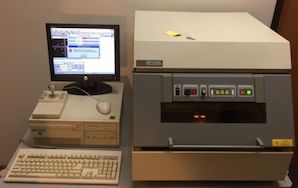
-----
Measuring the thickness of plating for science project
2003
Dear Finishing.com,
am a ninth grade student, and I wrote an inquiry (#18239) about a month ago about a science fair project involving electroplating. In the response I was told to look up and research Faraday's Law, which I did. However, in order to complete the project I have in mind (Determine the effectiveness of the average vinegar ⇦in bulk on eBay or Amazon [affil link] /salt solution used for electroplating by measuring thickness.), I need to determine a simple way in which I can measure the thickness of the plating. I would appreciate any help I could get.
Thank you,
Lauren [last name deleted for privacy by Editor]- Upper Marlboro, Maryland, USA
< P>A. Once again we applaud your ambition, Lauren. If you plate for a long, long time (at least a full day) you may be able to measure the thickness with a micrometer. Or you may have a precision scale in your chem lab where you can weigh the plated item before and after (that would probably be better). If you could plate a very thin foil of metal, that would be best since the percentage change would be more obvious. There are instruments like X-Ray Fluorescence devices that can measure the thickness easily and accurately but they usually would not be in a high school lab. Your science teacher probably will be willing to help you with this part if you are demonstrating enough initiative to be trying to prove theories about Faraday's Law and plating efficiency. Good luck.

Ted Mooney, P.E.
Striving to live Aloha
finishing.com - Pine Beach, New Jersey
Ted can be retained for immediate
answers or long term project help
2003
Q, A, or Comment on THIS thread -or- Start a NEW Thread
